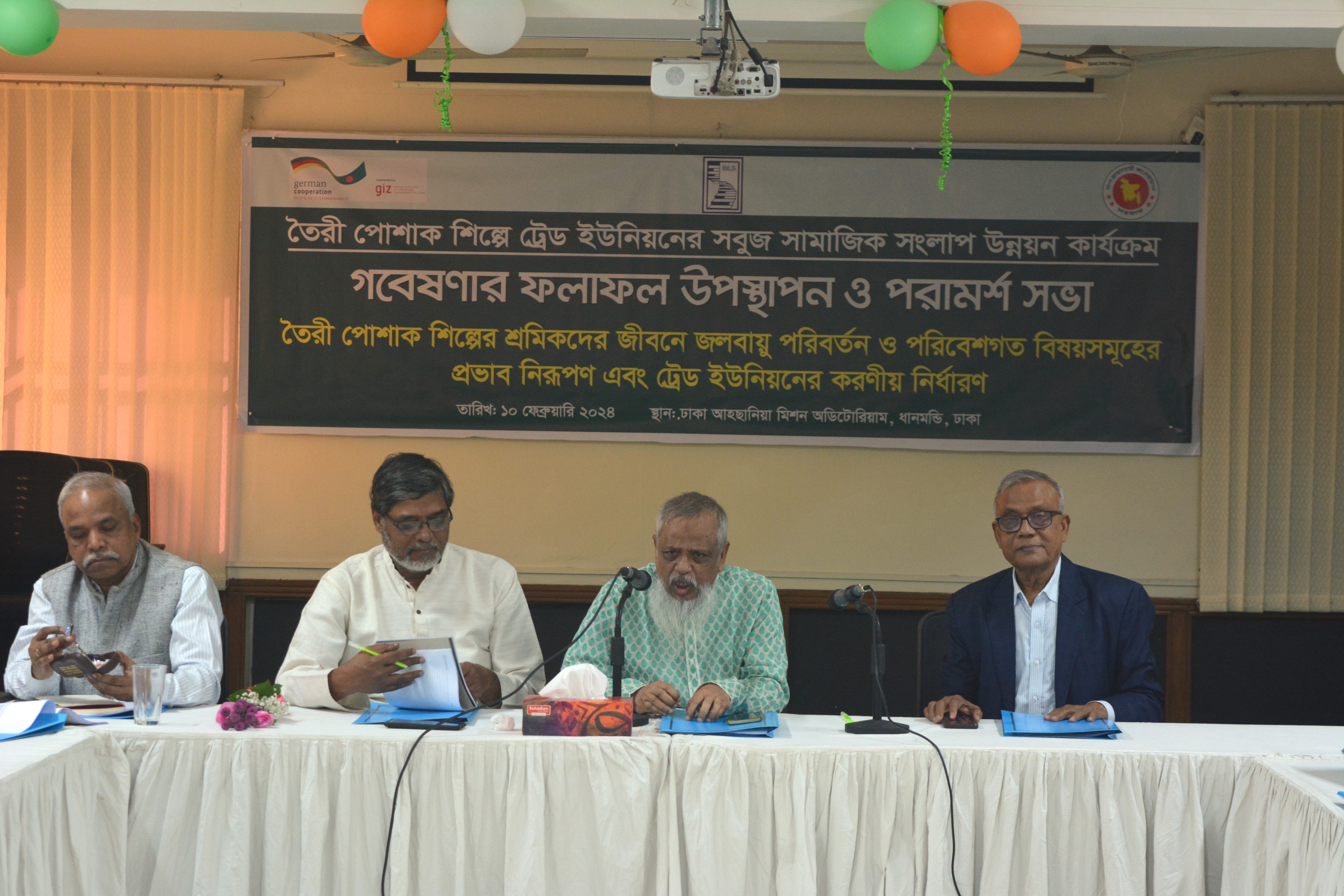 BILS with the cooperation of GIZ, organized a consultation meeting on the presentation of the results of the research titled ‘Assessing Exposure and Vulnerabilities of RMG Workers to Climate Change and Environmental Causes’ on February 10, 2024 at the Dhaka Ahsania Mission Auditorium in Dhanmondi.
BILS with the cooperation of GIZ, organized a consultation meeting on the presentation of the results of the research titled ‘Assessing Exposure and Vulnerabilities of RMG Workers to Climate Change and Environmental Causes’ on February 10, 2024 at the Dhaka Ahsania Mission Auditorium in Dhanmondi.
BILS Vice Chairman Md. Mojibur Rahman Bhuiyan presided over the meeting and the leaders, researchers, academicians and journalist, leaders of SKOP and BILS associated National Trade Union Federations were present.
This research work was recently completed under Strengthening Trade Unions’ Capacities for a Green Social Dialogue in Bangladesh’s RMG Sector Program operated by BILS. Basically, this research was conducted in the areas adjacent to garment factories in the labor-intensive areas of Gazipur and Tongi, and in the residential areas and communities of garment workers.
The discussants pointed out that:
- Research on environmental impact should be a full separate research
- Difference between green and non-green industry might be separate research
- Question is there how much efficient is green factory now comparative with non-green
- How much factories are TU oriented needed to be found out.
- TU should raise the issue to government for policy formulation regarding Climate Change
- Connectivity of TU to be monitored and measured through study
- Not only production process but also total production chain should be given focused
- Relevance of the research should be addressed with national policy and plan
- Limitations of all relevant laws and role of TUs should be addressed
- TU needs a working plan
- Task force needed to be formed
- Responsibility of Department of Environment should be figured out
- Special Economic Zones are to be given emphasized to address CC and environmental issues in advance
- Global Supply Chain should ensure support for their compliance
- Channel should be established between study and TU for implementation

